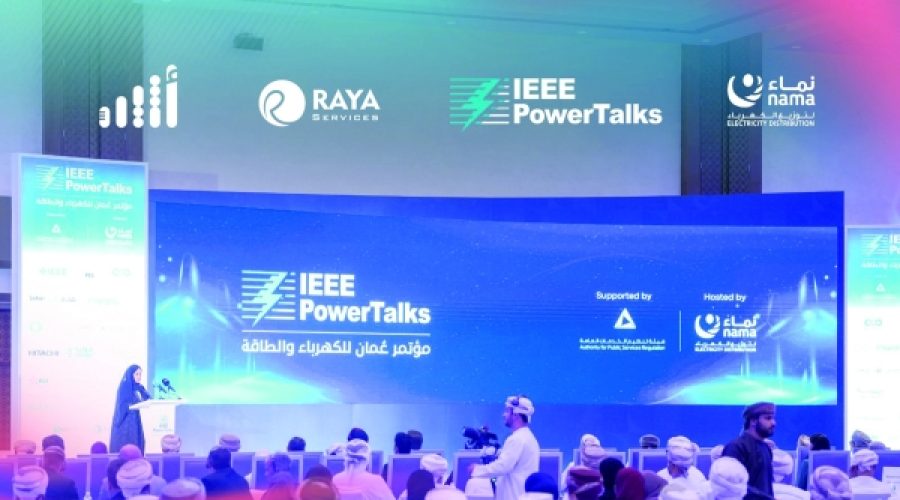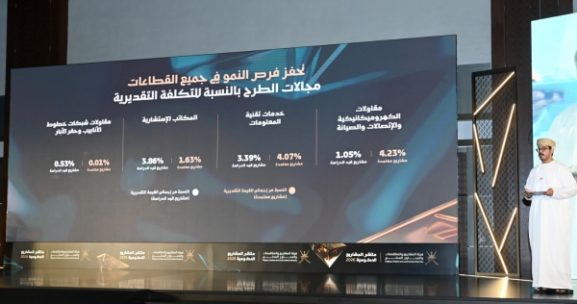IEEE PowerTalks 2025: رؤى رئيسية حول هندسة التحول في مجال الطاقة في سلطنة عُمان وتأثيره على فرص الأعمال
مسقط: في الوقت الذي يواجه فيه قطاع الطاقة في سلطنة عمان تحدي التحول من البنية التحتية التقليدية إلى الطاقة المتجددة، انطلقت فعاليات IEEE PowerTalks 2025 في مسقط هذا الأسبوع برسالة واضحة وعاجلة: إن التحول في مجال الطاقة لم يعد مجرد طموح مستقبلي بل أصبح تحديًا هندسيًا وسياسيًا ملحًا يتكشف الآن.
حفل افتتاح الحدث، تحت عنوان "تسريع التحول في مجال الطاقة في عُمان" وضع جدول أعمال محدد للمنتدى الذي يستمر ثلاثة أيام، يعكس المرحلة الحرجة التي تمر بها عُمان حاليًا. وتنبع الحاجة إلى تسريع هذا التحول من عوامل هيكلية، مثل ارتفاع الطلب المحلي على الطاقة، وتقلب عائدات الهيدروكربونات، وتزايد الضغوط المناخية، والتي تُعيد جميعها تشكيل مشهد الطاقة في البلاد.
في كلمتها الرئيسية، أكدت الدكتورة كارول نخلة، الرئيسة التنفيذية لشركة كريستول إنرجي، أن التحول في قطاع الطاقة يتطلب أكثر من مجرد حلول تكنولوجية. وقالت: "لا يقتصر التحول في قطاع الطاقة على استبدال أنواع الوقود فحسب، بل يشمل أيضًا بناء أنظمة فعّالة ومرنة وشاملة". وسلطت الدكتورة نخلة الضوء على أهمية مواءمة السياسات والاستثمار والابتكار في إطار عمل متماسك لتحقيق التوازن بين تنويع مصادر الطاقة والأمن طويل الأمد.
أكد المهندس علاء موسى، الرئيس التنفيذي لشركة نماء لتوزيع الكهرباء، التزام شركته ببناء مستقبل أكثر نظافةً وتواصلاً. وقال: "يحتل قطاع الكهرباء في عُمان صدارة التغيير. ومن خلال شراكات مثل IEEE PowerTalks، نستثمر في الحلول الرقمية وشبكات الكهرباء الذكية لخدمة مجتمعاتنا بشكل أفضل".
رحّب المهندس عبد الله الوهيبي، رئيس فرع جمعية الكهرباء والطاقة في معهد مهندسي الكهرباء والإلكترونيات (IEEE) في عُمان، بالمشاركين، مؤكدًا على الدور الحيوي للخبرات المحلية. ودعا إلى مشاركة أوسع من المهنيين والباحثين الشباب، مشيرًا إلى أن تحوّل القطاع يعتمد على رعاية المواهب المحلية.
ركزت الجلسة الصباحية، التي حملت عنوان "تحديثات سوق الطاقة"، على الإصلاحات التنظيمية، وتنويع مصادر الطاقة، وتجارة الطاقة الإقليمية، والنماذج المالية الداعمة لمشاريع الطاقة المستقبلية. وأكد المشاركون على أهمية مواءمة هذه الجهود مع أهداف رؤية عُمان 2040.
في فترة ما بعد الظهر، ناقشت جلسة أنظمة الطاقة وحلول الشبكات كيفية تعزيز الذكاء الاصطناعي والتحليلات المتقدمة لمرونة الشبكة في ظل تزايد تكامل الطاقة المتجددة. ناقش المتحدثون استراتيجيات تكامل أنظمة التخزين الهجينة، وتحديث أنظمة النقل، وأنظمة الاستجابة للطلب التكيفية.
تناولت الجلسة الختامية أنظمة التوزيع، متمحورةً حول إزالة الكربون من الشبكات وتحسين الكفاءة التشغيلية. وناقش الخبراء مواضيع شملت الصيانة التنبؤية، ومنع الانقطاعات، والأدوات الرقمية المصممة لتقليل خسائر النظام مع تعزيز موثوقيته.
في ختام اليوم، وجّه المهندس عبد الله الوهيبي رسالةً جامعةً: "التكنولوجيا ليست سوى جزءٍ من المعادلة. فالتقدم الحقيقي ينبع من التعاون، وتبادل المعرفة، والإرادة للعمل". جسّدت كلماته روحَ منتدى IEEE PowerTalks 2025، وهو منتدى تلتقي فيه الخبرة بالهدف، ويدفع الحوارُ عجلةَ الابتكار المستدام.
كانت رسالة اليوم الافتتاحي واضحة: تحوّل الطاقة مسؤولية جماعية. يواجه المهندسون وصانعو السياسات والمبتكرون تحديًا لتحويل الرؤى إلى حلول عملية، والحفاظ على الزخم بعد انتهاء المؤتمر، وتحقيق تقدم ملموس في قطاع الطاقة في عُمان.
تحليل خاص من عمانت | تصفح سوق عُمان
يمر قطاع الطاقة في سلطنة عمان بمرحلة محورية، حيث إن تسريع التحول في مجال الطاقة يمثل ضرورة هيكلية وفرصة استراتيجيةبالنسبة للشركات، يشير هذا إلى وجود أرض خصبة للاستثمار في حلول الشبكة الرقمية والبنية التحتية الذكية والتقنيات المتجددةمع تسليط الضوء أيضًا على خطر التخلف عن الركب في مواءمة السياسات والابتكار مع رؤية عُمان 2040. يجب على المستثمرين ورجال الأعمال الأذكياء التركيز على الشراكات التي تستفيد من الخبرة المحلية والتقنيات الناشئة مثل مرونة الشبكة التي تعتمد على الذكاء الاصطناعي لدفع النمو المستدام وأمن الطاقة في السوق المتطورة.



